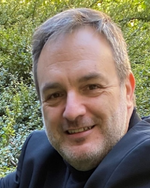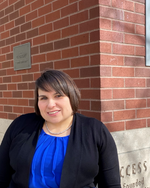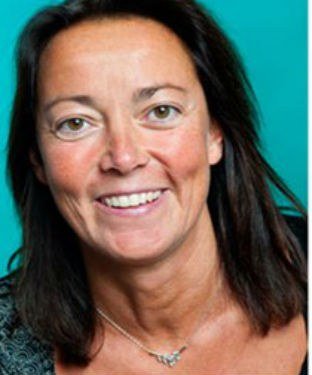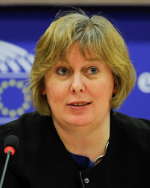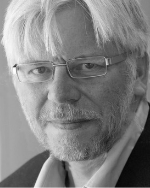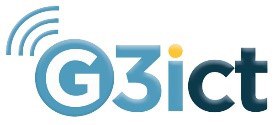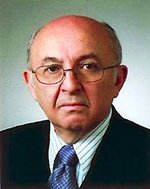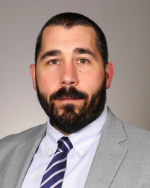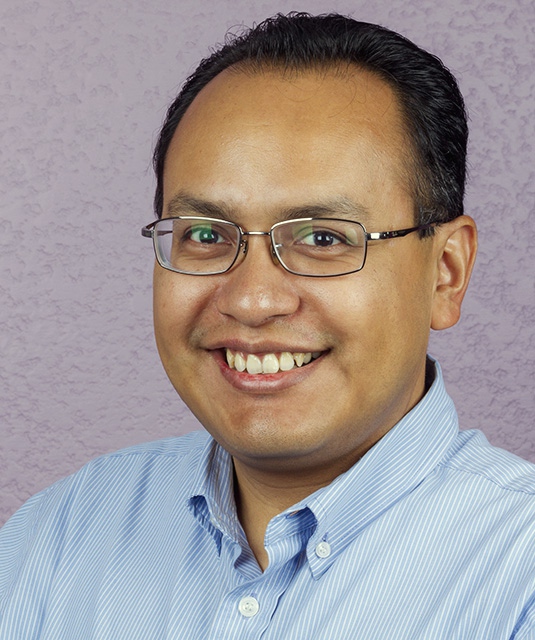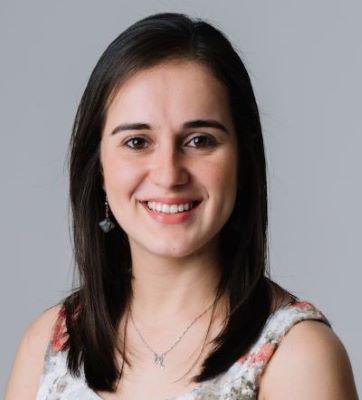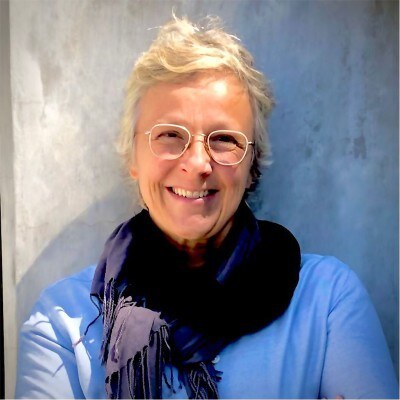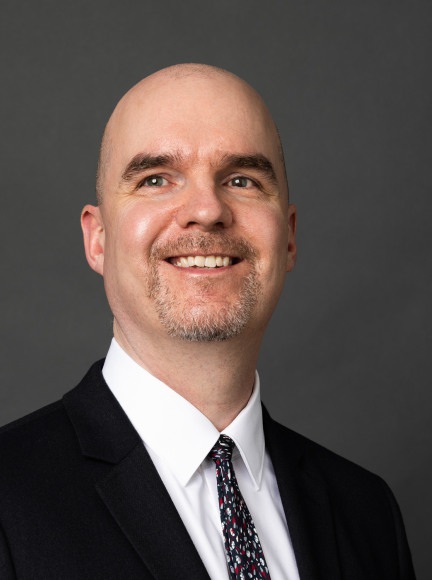Interview with Dr. Linamara Rizzo Battistella, São Paulo State Secretary for the Rights of the Person with Disability (SEDPcD), Brazil
Posted on March 10, 2011

Vice President
Francesca Cesa Bianchi (F.C.B.): Can you tell us more about the relevance for SEDPcD of the technical cooperation plan just announced with G3ict within the new economic development program of the Government of the State of São Paulo?
Secretary Linamara Rizzo Battistella (L.R.B.): Since its creation in 2008, the State Secretariat for the Rights of the Person with Disability's (SEDPcD) influence on São Paulo’s social agenda has grown significantly. In fact, SEDPcD and its programs are strongly represented in Governor Dr. Geraldo Alckmin’s four-year plan. We are happy to report that this new prominence and our corresponding ability to improve the life and prospects for persons with disabilities is due to a great extent to the collaboration of people and organizations from other public and private sectors of society, both locally and internationally. The SEDPcD sees this new avenue of technical cooperation with G3ict as an opportunity to further its reach towards the international community, building on work already started with one of G3ict’s sponsoring Institutions: Fondazione Rosselli Americas (FRA). FRA facilitated the contact with G3ict and through that association SEDPcD has benefited from G3ict’s participation in the organization of the SEDPcD’s event “The Knowledge Economy from the Perspective of Inclusion” -- a concept developed by FRA in its International Knowledge Economy Program. We look forward to new ways and venues of collaboration with G3ict, along the lines of the Letter of Intent signed by our two institutions.
F.C.B.: Earlier in 2010, G3ict has participated in the implementation phase of a Center of Excellence on Technology and Innovation for Persons with Disabilities (CETI-D) dedicated to invest in R&D for assistive technologies, as mandated by the Convention. Can you tell us more about CETI-D participants and objectives?
L.R.B.: SEDPcD, with support from FRA and G3ict’s participation, has conceptualized CETI-D to support the work of SEDPcD by identifying technologic and organizational solutions to strengthen the Lucy Montoro Network and the rehabilitation and social inclusion of persons with disabilities. Our objective is to generate significant economies of scale by developing such solutions to a level where they can be produced and applied massively in a cost-effective way.
CETI-D will work to fulfill the following main objectives: (i) constitute a regional hub for R&D on assistive technology and products, generating new knowledge and adapting knowledge developed elsewhere; (ii) promote social inclusion of persons with disabilities through the development of job markets and marketable skills for persons with disabilities by conducting research to improve skills, particular conditions, and specific cognitive abilities of persons with disabilities; (iii) promote social inclusion of persons with disabilities through multi-sector investment – transportation systems, urban planning, accessible public services, communications, etc. – in coordination with other public and private sector agencies; and (iv) create a network of Brazilian and international organizations who share the same belief that social inclusion of persons with disabilities will benefit not only the latter, but also the whole of society as well.
F.C.B.: How does the Secretariat ensure that persons with disabilities participate in the definition of its policies and programs?
L.R.B.: On December 19th, 1984 the Government of the State of São Paulo created the State Council on the Matter of Disabled Persons, later renamed as State Council on the Matter of Persons with Disabilities, or CEAPcD, in its Portuguese acronym. Currently, this Council is formed by 10 representatives of the State Government and 20 representatives of the civil society, half of which represents the organizations of the Disability Rights movement, and the other half represents the entities that deliver services to persons with disabilities, advising and assessing the State Government in its policies toward the inclusion of persons with disabilities.
Besides other attributions, the CEAPcD must: discuss and approve SEDPcD’s Action Plan, according to the guidelines established by the State Policy, the Constitution of São Paulo, the Brazilian Federal Constitution and the International Human Rights Treaties; monitor, assess and propose changes on the actions and public policies found crucial to persons with disabilities; promote, stimulate, and control the awareness raising campaigns, educational programs, among other measures, taken by the SEDPcD.
Thus, the Government of the State of São Paulo complies with the United Nations Convention on the Rights of Persons with Disabilities (CRPD) and promotes the “effective participation and inclusion” of persons with disabilities representative organizations “in the development and implementation of legislation and policies to implement” their rights and fundamental freedoms.
F.C.B.: Which areas of assistive ICT applications will CETI-D focus on?
L.R.B.: With its strong IT industry, proactive government, leading Internet usage, and commitment to promoting the rights of persons with disabilities and its large domestic market, Brazil has all the ingredients to become a global leader in accessible and Assistive Technologies (AT). In order to achieve such a position, CETI–D intends to develop a roadmap for developing accessibility services and R&D programs with global potential which would also strengthen its own domestic objectives. Areas of greatest opportunity will likely be in the three following segments:
- Mobile phone applications
- Cloud-based AT services
- High added value IT based condition specific ATs
Brazil’s success could lead to significant AT volumes and economies of scale thus contributing to lowering costs for international markets as well.
F.C.B.: Which types of public-private partnerships would be most effective in your opinion to support research and innovation in the field of ICT accessibility and Assistive Technologies?
L.R.B.: The ambitious task the SEDPcD has set out to accomplish through CETI-D cannot be achieved without the support of the community, in particular the support of those in the community in a position to make a change in the conditions and opportunities open to persons with disabilities, physical, sensorial and/or intellectual. Thus, the SEDPcD has established a set of “networks” that link CETI-D with different sectors and actors in the entrepreneurial, industrial, academic and social-work sectors, who can be instrumental in applying its principles and programs.
CETI-D has invited members of research, academic, education, public sector agencies involved with issues of concern of persons with disabilities and members of the private sector, and has so far established four Support Networks: Research Network; Industrial Innovation Network; Social Inclusion Network and Sustainable Financing Network.
CETI-D will continue to enhance its Support Networks seeking people and organizations interested in enhancing the impact of their individual work by becoming part of a larger group under the guidance of SEDPcD to pursue joint goals which can multiply the effect of otherwise disparate and uncoordinated efforts. We are also seeking international and national research centers willing to undertake joint research, education, and social development projects in partnership with CETI-D, as well as the opportunity to apply academic or theoretical research to operational projects through the connections CETI-D has with the public and private sector involved in actual provision of services for persons with disabilities.
In this context, we are looking forward to participate in international events and processes, leading the participation of Latin American Countries (LAC) to make such international events relevant to the specific needs and conditions of persons with disabilities, with support from FRA and G3ict.


